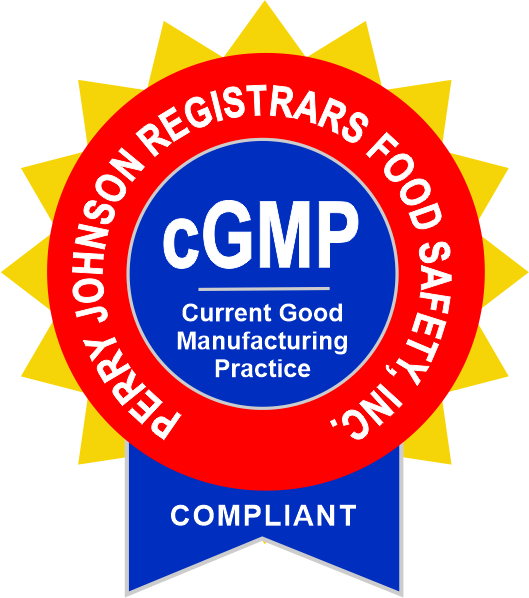 At Perry Johnson Registrars Food Safety, Inc. (PJRFSI), we are committed to enhancing food safety standards through robust certification and compliance programs. One of our key offerings is the current Good Manufacturing Practices (cGMP). Let’s dive into the realm of cGMP, shedding light on its significance, purpose, and impact on organizations.
At Perry Johnson Registrars Food Safety, Inc. (PJRFSI), we are committed to enhancing food safety standards through robust certification and compliance programs. One of our key offerings is the current Good Manufacturing Practices (cGMP). Let’s dive into the realm of cGMP, shedding light on its significance, purpose, and impact on organizations.
WHO?
Good Manufacturing Practices (GMP) were initially developed and mandated by the U.S. Food and Drug Administration (FDA). In addition to the FDA, other global organizations and regulatory bodies, such as the European Medicines Agency (EMA), the World Health Organization (WHO), and the International Council for Harmonization of Technical Requirements for Pharmaceuticals for Human Use (ICH), have developed and implemented their own GMP guidelines, harmonizing them internationally to ensure consistent manufacturing quality and safety standards worldwide.
WHAT?
Current Good Manufacturing Practices (cGMP) compliance ensures that a company’s manufacturing processes meet stringent quality and safety standards. It is critical for industries such as food, pharmaceuticals, cosmetics, dietary supplements, and medical devices. It demonstrates a commitment to maintaining high production standards, regulatory compliance, and consumer safety. Achieving cGMP compliance involves rigorous auditing and adherence to best practices, which helps businesses improve operational efficiency, manage risks, and gain a competitive edge in the market.
WHERE?
- Food and Beverage Manufacturers: Ensuring safety and quality in food production processes.
- Pharmaceutical Companies: Meeting regulatory standards for drug production.
- Cosmetic Manufacturers: Guaranteeing product safety and consistency.
- Dietary Supplement Producers: Verifying product integrity and compliance with health regulations.
- Medical Device Manufacturers: Ensuring devices are produced to strict quality standards.
WHEN?
The creation of GMP regulations was a response to several incidents in the early 20th century where poor manufacturing practices led to serious health issues and even fatalities. The FDA formally introduced the first set of GMP regulations in 1963.
WHY?
cGMP compliance, standing for current Good Manufacturing Practices, offers several key benefits to organizations, particularly those in the pharmaceutical, biotech, and food industries. These benefits include:
- Quality Assurance: cGMP compliance ensures that products are consistently produced and controlled according to quality standards. This minimizes the risk of defects and variations, leading to higher product quality and reliability.
- Consumer Safety: Adherence to cGMP standards helps ensure that products are safe for consumer use, reducing the risk of contamination, mix-ups, and errors that could harm consumers.
- Regulatory Approval: Compliance with cGMP is often a prerequisite for obtaining approval from regulatory bodies like the FDA and EMA. This facilitates market access and helps avoid legal penalties and product recalls.
- Market Trust and Competitive Advantage: Organizations that comply with cGMP standards demonstrate their commitment to quality and safety, which can enhance their reputation, build consumer trust, and provide a competitive edge in the marketplace.
- Operational Efficiency: Implementing cGMP practices can lead to improved manufacturing processes, reduced waste, and better resource management, resulting in cost savings and higher operational efficiency.
 Introducing the PJRFSI “cGMP Compliant” Logo!
Introducing the PJRFSI “cGMP Compliant” Logo!
We are excited to announce the release of our custom PJRFSI “cGMP Compliant” logo. Certified clients can now proudly display this logo on their products and websites, showcasing their dedication to maintaining high manufacturing standards. This mark of excellence not only reinforces your brand’s credibility but also enhances consumer confidence in your products.
Partner with PJRFSI to navigate the complexities of the food safety landscape. Our experienced auditors provide comprehensive support throughout the auditing process, ensuring your operations align with the best practices in the industry.
For more information on our cGMP program and how it can benefit your business, visit our GMP page. Reach out to us today to start your journey towards superior food safety and quality.
Leave a Reply
You must be logged in to post a comment.